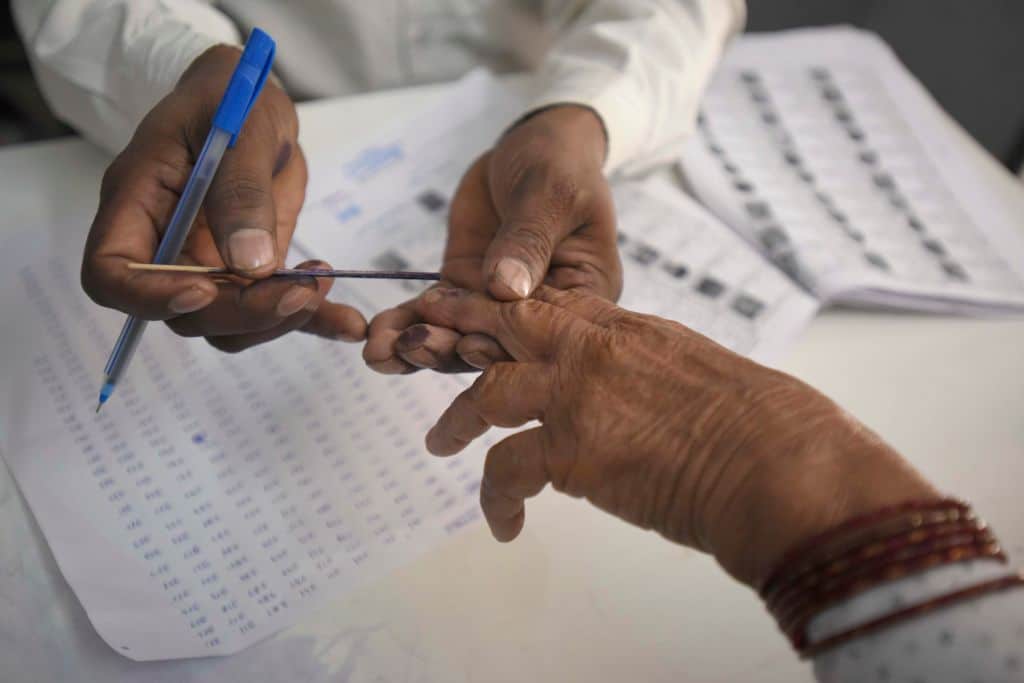“What is a greater opportunity to remedy impropriety than through elections..?”
Human beings are an optimistic species as, despite all that we do contrary to better judgment, we believe that the future will always be better than the past. As the New Year starts, we are all hopeful that 2024 will definitely bring better sense to people, particularly to those in power to make sincere amends to the lapses of the past. What is a greater opportunity to remedy impropriety than through elections and bringing about change; particularly in countries where it is needed the most?
2024 will be one of the most defining years as billions of voters in over 50 countries around the world go to the electoral ballot to choose who will lead them for the next statutory period. These countries include the United States (US), India, Russia, Pakistan, Indonesia, Taiwan, Iran and many more. The European Union (EU) parliamentary elections are due in 2024 along with Austria, Belgium, Portugal and likely the United Kingdom (no later than January 2025). However, 16 or almost a third of the countries going to the ballot are from Africa, to include but not limited to South Africa, Namibia, Botswana, Mozambique, Mauritius, Rwanda, Ghana, Tunisia, Togo, Chad and Senegal. While we remain wary of change, in most cases, change brings eventual growth and increases the accountability of leaders.
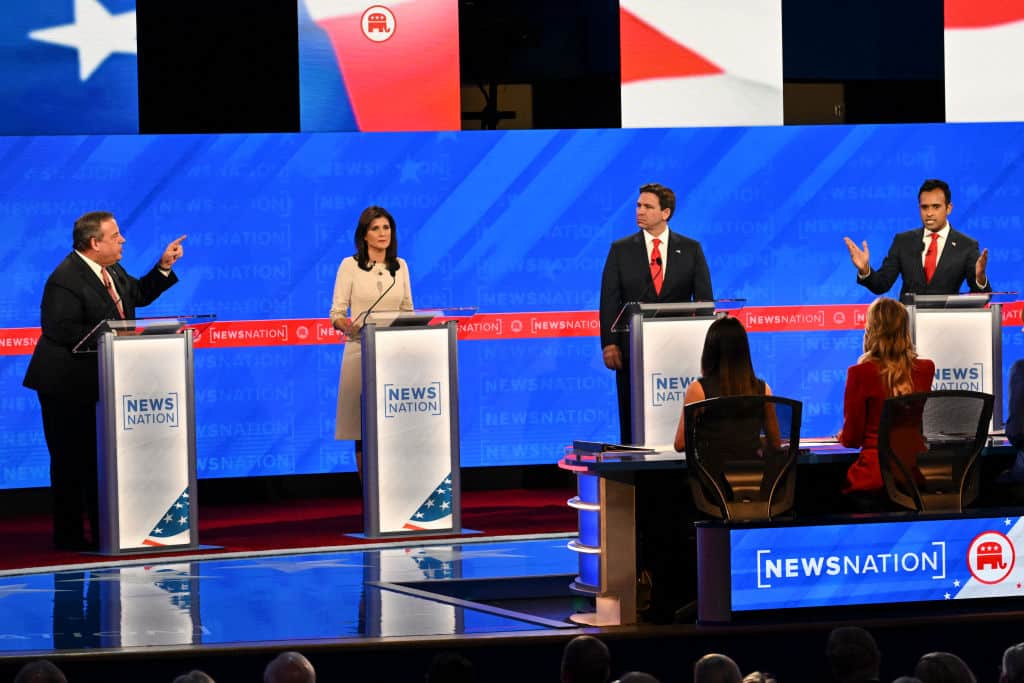
Republican presidential candidates Former New Jersey Governor Chris Christie, left, and businessman Vivek Ramaswamy, right, talk over each other during the NewsNation Republican Primary Debate inside the Moody Music building at the University of Alabama on Wednesday, December 6, 2023 in Tuscaloosa, Alabama. Also pictured are former United Nations Ambassador Nikki Haley, center left, and Florida Governor Ron DeSantis. (Photo by Joshua Lott/The Washington Post via Getty Images)

Having lived in South Africa for almost two decades, it’s the country that I remain most concerned about mainly because I love this beautiful country that has been our third home (India and UAE being the first two). Over the last 28 years, there has undoubtedly been a systemic erosion of the popularity and electoral base of the African National Congress (ANC). Ironically, facing marginalization, this is the very party, along with its leaders, that fought to bring about change from apartheid and secured freedom for its majority black, colored and Indian population.
Loading...
The reasons for its decline remain consistent as for any ruling party: self-serving leadership, blatant abuse of power, total disregard to the needs of the poor and needy, and, finally, the discontentment of the electorate.
The reason I worry is that because in the absence of a clear alternative to the ANC, South Africa is headed towards an era of volatile coalitions. The ANC has been slowly fragmenting, akin to the proverbial binary fission of an Amoeba, as more cells are formed from the same nucleus. The likely course is either a very narrow victory for the ANC or a path where each of the nine provinces will form governments through the coalitions of parties coming from the same constitution, similar values and ideologies but with no track record of governance or selfless service to the people. Coalitions don’t survive even with the best intent as there are far too many conflicts of interest between coalition partners. This will lead to a period of stagnation, political instability and economic uncertainty for the next decade.
“Coalitions don’t survive even with the best intent as there are far too many conflicts of interest between coalition partners. This will lead to a period of stagnation, political instability and economic uncertainty for the next decade.”
What will serve South Africa well is its God-given gift and wealth of being a resource-rich country. However, it remains to be seen if this will be adequate, in the absence of a functional bureaucracy, prevailing monopolies and lack of consistency in policies. The economic and political stability, or lack thereof, in South Africa will have an impact on the overall development of the African continent but more so on the 16 members of the Southern African Development Community (SADC) countries. This will be an interesting space to watch in the coming years.

Supporters of Turkish President Recep Tayyip Erdogan celebrate as Erdogan leads Turkiye’s presidential runoff election in Brussels, Belgium on May 28, 2023. (Photo by Dursun Aydemir/Anadolu Agency via Getty Images)
However, Africa is not the only contributor to growing global economic uncertainty. The real impact will be felt after if there is a change of guard in the US and whether there will be the outside chance that Donald Trump or the Republican Party prevail in the coming election. The jury is still out on whether the US and consequently the EU will continue to push the expansion of the North Atlantic Treaty Organization (NATO) and other agendas that will force continued hostility with Russia. This would require billions of dollars to be pumped into Ukraine in a senseless war that will only see more bloodshed. Since Russian President Vladimir Putin is likely to remain unopposed in his bid to win another presidential term, it’s unlikely that there will be any change in Russia’s objective to ensure that NATO does not spread to its borders. If the Western powers continue to support the war, it’s likely that at some stage the war may expand from a limited campaign in Eastern Ukraine, into the complete destruction of the country. As more time passes, the goal posts will continue to change and positions will get further cemented, which is the opposite of finding a negotiated settlement. No qualified General from any army can say with any conviction that Ukraine has any chance of winning a war against Russia without this escalating into a war against NATO. Nobody will benefit from this and we will continue on a path of self-destruction.
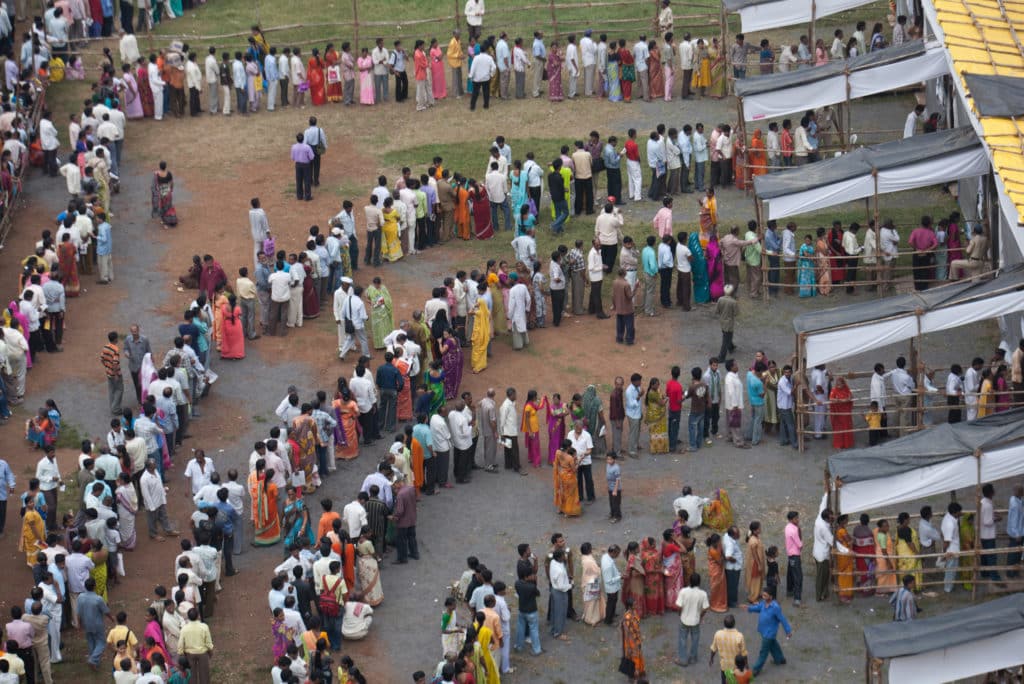
Under these circumstances, Ukraine needs a change in political ideology and possibly leadership that needs to realign with its former cold war ally and bring back peace into the Black Sea region. The war of ego will seldom be won by the weak. The path to peace is to ensure that neither party sees future threats in each other’s alignments and are not swayed by the agendas of third parties. Peace with Russia and a restoration of energy supply to Europe will reduce the economic pain and pressure in the lives of all European citizens. Continued war and escalation of hostilities as we are seeing currently, is not a solution to the problems in the Black Sea area.
We are likely to see continued problems arising from the war between Israel and Hamas in Gaza. This problem is likely to spill into different parts of the world as the anti-Israel sentiment is reportedly growing everywhere. No one can condone what happened on October 7 but the killing of over 20,000 Palestinian citizens is not the answer. Hamas is an ideology and will foster itself in some other way to reinforce this ideology. This is a problem that cannot be solved without the consent and direct involvement (through cutting financial and military support) of both the US as one of the key allies of Israel, and Qatar and Iran as the key allies of Hamas. A spread of this war to Lebanon (Hezbollah) or the involvement of Jordan, Syria, Egypt and/or any of the Gulf Cooperation Council countries can destabilize the global economy and most certainly disrupt peace in the region.
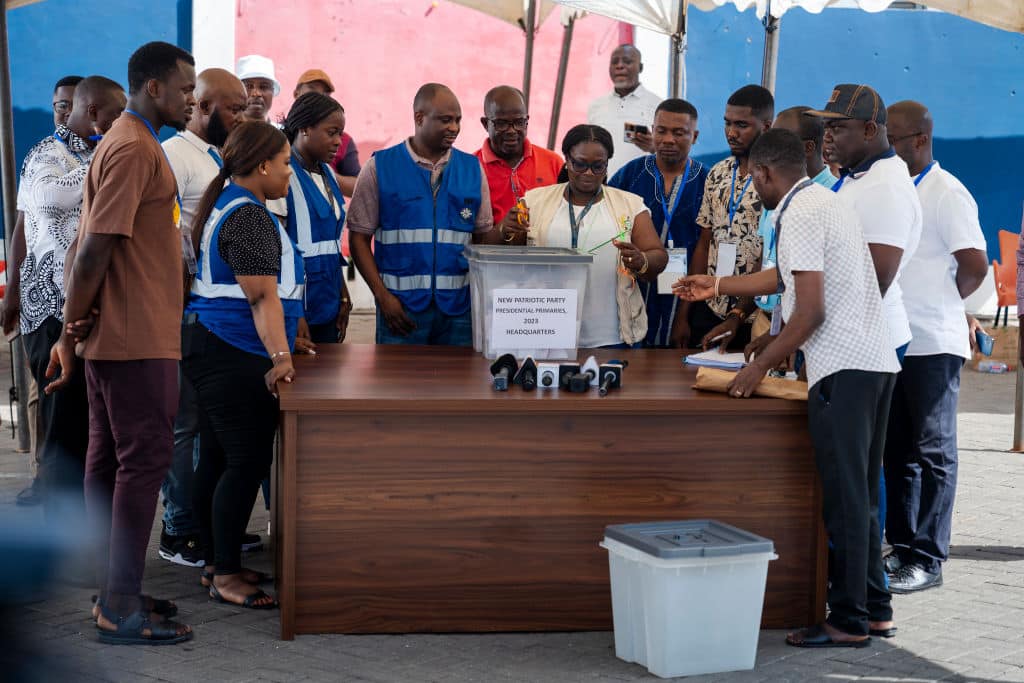
An election official opens a ballot box for votes counting at the headquarters of the New Patriotic Party during the 2023 presidential primaries on November 4, 2023 in Accra, Ghana. This election will determine who becomes the flagbearer of the party in the upcoming presidential elections in December 2024. (Photo by Ernest Ankomah/Getty Images)
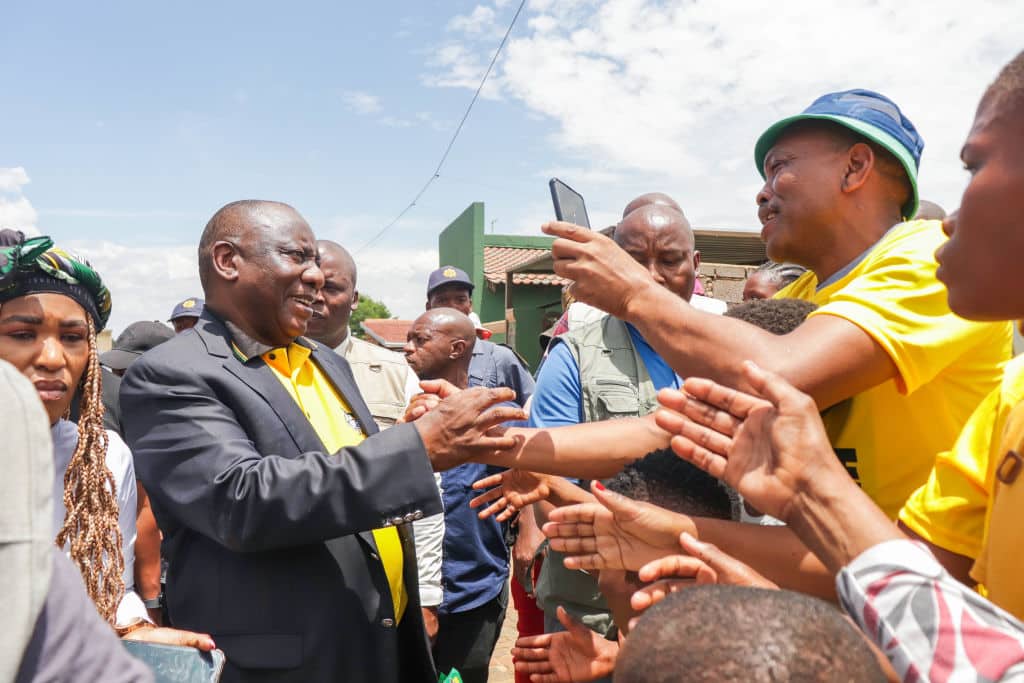
These two major flash points will determine the global geopolitics in the coming year. The third is the China factor, both in its economic revival and its global geopolitical ambitions, more specifically in the South China Sea, Taiwan and in the Pacific which will remain a cause for concern, but other than periodic posturing, there is no imminent threat seen from China. The Asia-Pacific Economic Cooperation (APEC) countries have so far been working closely on economic development and continue to control the largest portion of the global computer and components market. The growth of this bloc will provide stability in the region particularly if trade barriers are removed in the coming period.
Other blocs like BRICS and its planned expansion are unlikely to move the needle in 2024. There is far too much happening elsewhere for the member countries to make any real attempt to do anything earth-shattering that would have a material impact on geopolitics. China and India remain adversaries with absolutely nothing in common except a contentious border and a deep level of growing mistrust. Other than payment solutions and enhancing trade, there is very little that will come from this bloc. India will continue to grow as an economic powerhouse and if the ruling Bharatiya Janata Party wins the elections, as is expected, the country will continue on its path to greater growth and stability. It will, hopefully, play a unifying role in global geopolitics through its own mantra of non-alignment.
The United Nations (UN) has lost its standing and I believe that we will continue to see this become a less relevant organization with the only significance coming from its developmental agencies. In my opinion, the UN headquarters should be moved to Switzerland or to any other relatively neutral country so that the current influence is ended and they can be closer to where good needs to be done. The UN Security Council (UNSC) statement on the Gaza atrocities was a passive call for “urgent steps to immediately allow safe and unhindered humanitarian access, and also for creating the conditions for a sustainable cessation of hostilities.” Even after this was drafted, the US abstained from voting just to allow some statement to pass. So, 2.5 million people can be completely uprooted and the world watches as we provide unhindered humanitarian access and create conditions to stop hostilities. Well done! We, the citizens of the world, need to be ashamed of ourselves.
The last major event of 2023 was the United Nations Climate Change Conference or the Conference of Parties (COP28) that was held in Dubai. COP28 was no doubt a spectacular gathering of over 70,000 influential people and delegates from around the world and was a year-end tourism and hospitality sector bonanza for the UAE and particularly for the emirate of Dubai. Other than delegates, about 400,000 people registered to attend the event during this period.
Conservatively, even if each person spent an estimated average of $5,000 in airline tickets, hotels, hospitality etc, the income generated would have been close to $1.5 billion to $2 billion in contrast to the hundreds of millions possibly spent on COP28. There were several strategic conversations, and many countries used the opportunity for meaningful bilateral meetings, hosted in one of the finest and safest places on earth. Everything was perfect except that the needle did not move on the urgent need to stop the reliance on fossil fuels.

A general view during a media briefing on voters registration weekend on November 18, 2023 in Johannesburg, South Africa. The Electoral Commission of SA confirmed that it is ready to register South Africans to vote in the 2024 elections. (Photo by Sharon Seretlo/Gallo Images via Getty Images)
The conference’s final statement could not pass with any mention of the slowing down or stopping of the production of fossil fuels; the core of the problem. So, was there a real return on the investment of about $2 billion that was spent by governments and large corporates to attend this event? There have been decisions on tripling renewable energy resources, doubling energy efficiency and the large contributions to the Loss and Damage Fund; however, no action points were set on the reduction or elimination of fossil fuels. When Covid-19 started, the world went on a mission to stop the spread and find a vaccine to eradicate the disease. No one focused on setting up a fund for funerals. Ironically, this is what COP28 resolved to do.
“The war of ego will seldom be won by the weak.”
Sadly, a large percentage of the global population does not still understand the impact of climate change and what 1.5 degrees above pre-industrialization temperature means. This increased temperature is catalyzing the age of Anthropocene; an age that will lead to the eventual extinction of all human life created solely by mankind’s impact on the global geology and ecosystem. The irreversible 1.5 degree benchmark is close to being breached and the next threshold we will set ourselves will be 3 degrees, by which time the planet will become a less habitable place, particularly for the poor. As stated in various reports, the world needs between $175 trillion to $275 trillion for energy transition; this is 2.6 times global GDP. The commitment of $85 billion at COP28, though noteworthy, falls really short of what is needed and any significant impact is, therefore, a pipe dream. There is a lot for us all to think about and start playing a meaningful role in bringing change. Saving the planet is a collective responsibility.
Loading...
